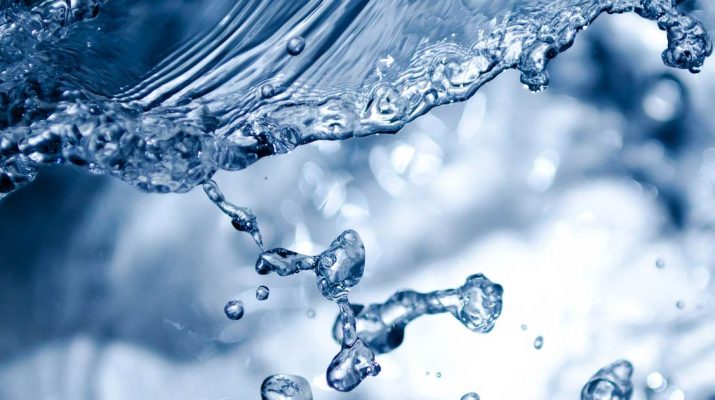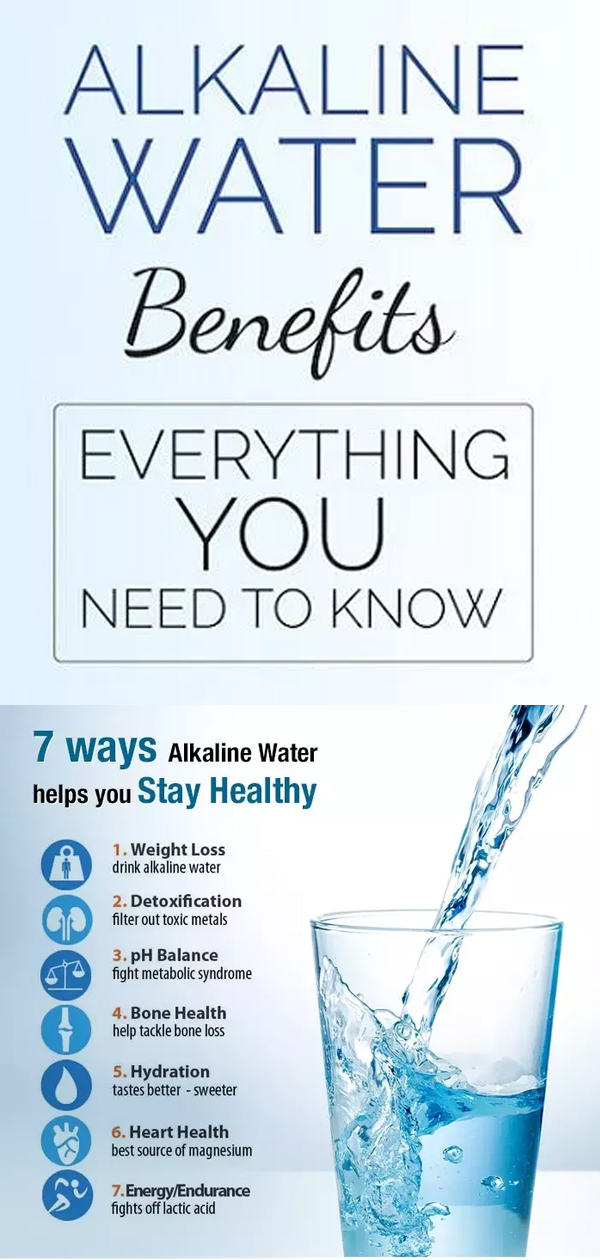If you’ve recently perused the bottled water aisle, you might have stumbled across alkaline water. Health claims vary from anti-aging to disease prevention and so forth. Perhaps you have read about it in a magazine or website, but what is it, and do you really need it?
What Is Alkaline Water?
Water contains pH levels that vary among sources and processes. Alkaline water must contain a pH of eight or higher as well as alkaline minerals. It must also have an oxidation-reduction potential (ORP), which allows water to maintain anti or pro-oxidant qualities. It aims for anti-oxidant properties or a negative ORP. Another name is ionized water.
What Are The Differences Between Artificial Or Naturally Alkaline Water?
Naturally produced ionized water occurs when water moves over rocks and minerals. This is why spring water tends to have a higher pH than tap water and is generally higher in mineral content. In fact, any time water passes over natural or artificial material, its pH and mineral composition can change.
Artificial production involves a process far from nature, and this accounts for the majority of water marketed as alkaline and ionized. Processes can include combining natural ingredients to change the water’s pH. Yes, you can make your own at home by adding a twist or two of acidic fruit juice, which seems counterproductive but isn’t, or baking soda.
Artificial methods can also consist of filtration that removes acidic properties from your water through ionization. However, it’s no closer to nature than swirling in a bit of lemon juice, despite many claims. Their systems first raise the levels of pH in your water before introducing electricity to separate acidic and alkaline molecules.
The problem with water ionizing systems is that the starting water quality matters greatly. Without using a reverse osmosis water system in conjunction with an ionizer, you’re doing little to enhance your water’s natural alkaline benefits.
What Isn’t Alkaline Water
• Spring water: while it contains less acidity than tap water and many consider it to be alkaline, spring water hasn’t been through the proper process to ensure it contains only alkaline minerals
• Tap water: tap water contains an average pH of seven
• Filtered water: some filtered waters will have alkaline processes, but generally, the filtering process removes much of the alkaline minerals that companies might or might not re-add later
• Distilled water: this is the purest form of water and is neutral until air meets it when it becomes acidic.
The acidity and alkaline contents of water vary among brands, according to this study.
Health Claims
Commonly Marketed Health Claims
The majority of health statements centered on alkaline water benefits have no scientific data to back them up. The FDA doesn’t support them. They have no ties to traditional medicine or natural medicine either.
• Prevents cancer—an unfounded claim
• Increases energy—unfounded claim
• Detoxifies—an unfounded claim
• Reduces anxiety—an unfounded claim based on bodily pH
• Strengthens bones—studies contradict
• Reduces risk of diabetes—unfounded claim
• Weight loss—an unfounded claim
• Colon cleansing—an unfounded claim
• Hydration—supported by science
• Reduces acidity in the body—studies support this
• Helps heart conditions, such as blood pressure, blood sugar, and cholesterol—studies support therapeutic use
• Cures or treats acid reflux disease—studies support therapeutic treatment
The majority of claims become true for some people who make their own lemon or infused waters at home. This is because of the fresh herbs, fruits, and extracts or oils they use. Water is only the carrier.
What Science Says About Alkaline Water Benefits
Research on water pH is still in its early stages with few scientists delving into it. Understand that good clean water is important for drinking and washing dishes.
To date, no definitive or long-term studies have proven the effectiveness of using ionized water over tap water. The exceptions are small studies showing the following alkaline water benefits: improved hydration lowered blood pressure, decreased cholesterol, reduced blood sugar, and neutralize stomach acid.
A study using 8.8-pH alkaline carbonated water found that some participants showed a neutralized pepsin enzyme. Elevations of this enzyme can be a major cause of acid reflux, so participants saw fewer symptoms (1).
However, a second study compared the use of a Mediterranean Diet and alkaline water against conventional treatments; scientists noted large differences in effectiveness, and they found the combination of diet and water performed better with subjects noting a reduction of their symptoms (2).
Ionized water might be a therapeutic treatment for hypertension, diabetes mellitus, and hyperlipidemia, according to one six-month study that witnessed notable improvement in blood pressure, blood sugar, and blood lipids.
In an animal study, subjects were fed alkaline water after achieving metabolic acidosis and renal failure. Some improvement occurred, but human studies have yet to be conducted. Results from the animal study could not be replicated.
This study looked at whole blood viscosity after participants enjoyed either a high pH, electrolyte-infused beverage or distilled water. Significant and positive changes could be seen in the high pH group. However, the study doesn’t offer information on the added electrolytes to the water, and they weren’t included in the distilled water.
The Truth About The Alkaline Diet
Many websites reference an old theory that does hold some merit since it promotes a mostly vegan diet. It doesn’t mention, promotes, or in any way suggest alkaline water benefits your health.
Previous theories from the 1800s on an alkaline diet and cancer have since been debunked. However, many of the alkaline, whole, plant-based foods recommended then are still suggested today for preventative measures against many diseases.
Concerns And Side Effects
Scientists and health professionals haven’t addressed the chemistry of water in their statements, which chemistry 101 classes have replicated in common classroom settings. Simply breathing on your water will change its pH to be more acidic. No drinking water can be free of acids because water molecules absorb carbon dioxide.
Consumption isn’t without possible short and long term side effects. In fairness, the same would apply to acidic water. However, the general medical consensus is that it’s safe to drink in place of your usual water consumption for most people.
Side Effects:
• Lowered acidity in the stomach that naturally combats harmful bacteria and pathogens (3)
• Skin Irritations
• Other gastrointestinal issues
• Metabolic Alkalosis
Metabolic Alkalosis Side Effects Can Include:
• Vomiting
• Hand tremors
• Twitching muscles
• Facial and body tingling
• Confusion
Another concern is that people will drink less water when it isn’t readily available. This can lead to dehydration and other health complications. Unless water contains contamination such as harmful bacteria or fecal matter, drinking regular water when your preferred water isn’t available will not harm your body.
Make Your Own Alkaline Lemon Water
You might be truly better off using the citrus or baking soda method with a clean source of water. The citrus method does offer additional scientifically backed health benefits: vitamin C, supports weight loss, supports your immune system, contains anti-oxidant properties, prevents kidney stones, eases digestive issues, freshens breath, and reduces dry mouth symptoms.
You can also add other kitchen herbs and food grade essences and oils to your water. Fresh ginger root is excellent for digestive issues, for example, and has a warming effect on the body. Add a sweetener of choice as needed.
Whether you drink your water hot, warm, or cold is up to you. If you start your infused water from a boiling or warm state, you might find bolder or bitterer flavors. Prolonged or high heat can damage the delicate oil compounds in plants, including their fruits. Refrain from overstepping your additives ad use hot but not boiling water. A cold infusion is also an option, as are sparkling waters.
Final Thoughts On Alkaline Water Benefits
Alkaline water requires more research to back many claims. With the exception of treating acid reflux related to an overproduction of pepsin, diabetes, high cholesterol and high blood pressure (which the science somewhat supports), you should aim to drink your water however you prefer it.
Considerations before making the switch:
• Drinking clean water is more important than your water’s pH level.
• Your body can maintain its own pH balance better than the water you drink
• Breathing on your water can change its pH
• You might or might not see notable differences by switching
• You might have side effects, such as digestive issues
• Lowered stomach acid to defend against harmful bacteria is a real concern
• No science or natural medical practice can back most health claims at this time
• Most benefits are therapeutic only
We understand the value of water in our diets. Our bodies contain more than 50% water, and daily activities, temperatures, exercise, and sickness can deplete us quickly. Whether you make your own infusions, use an ionizer, or buy your water pre-bottled, clean water is more important than its pH when it comes to your health.


